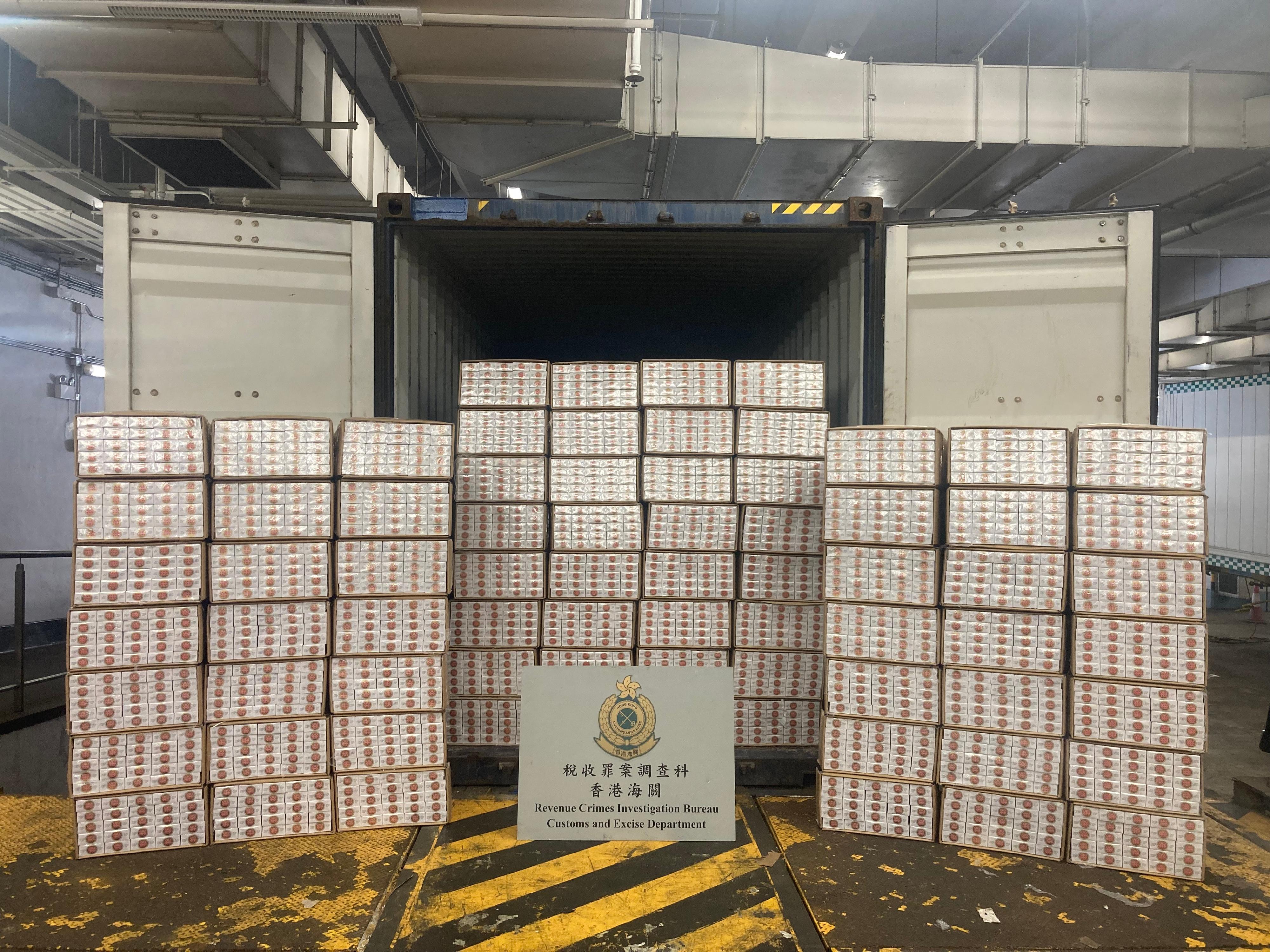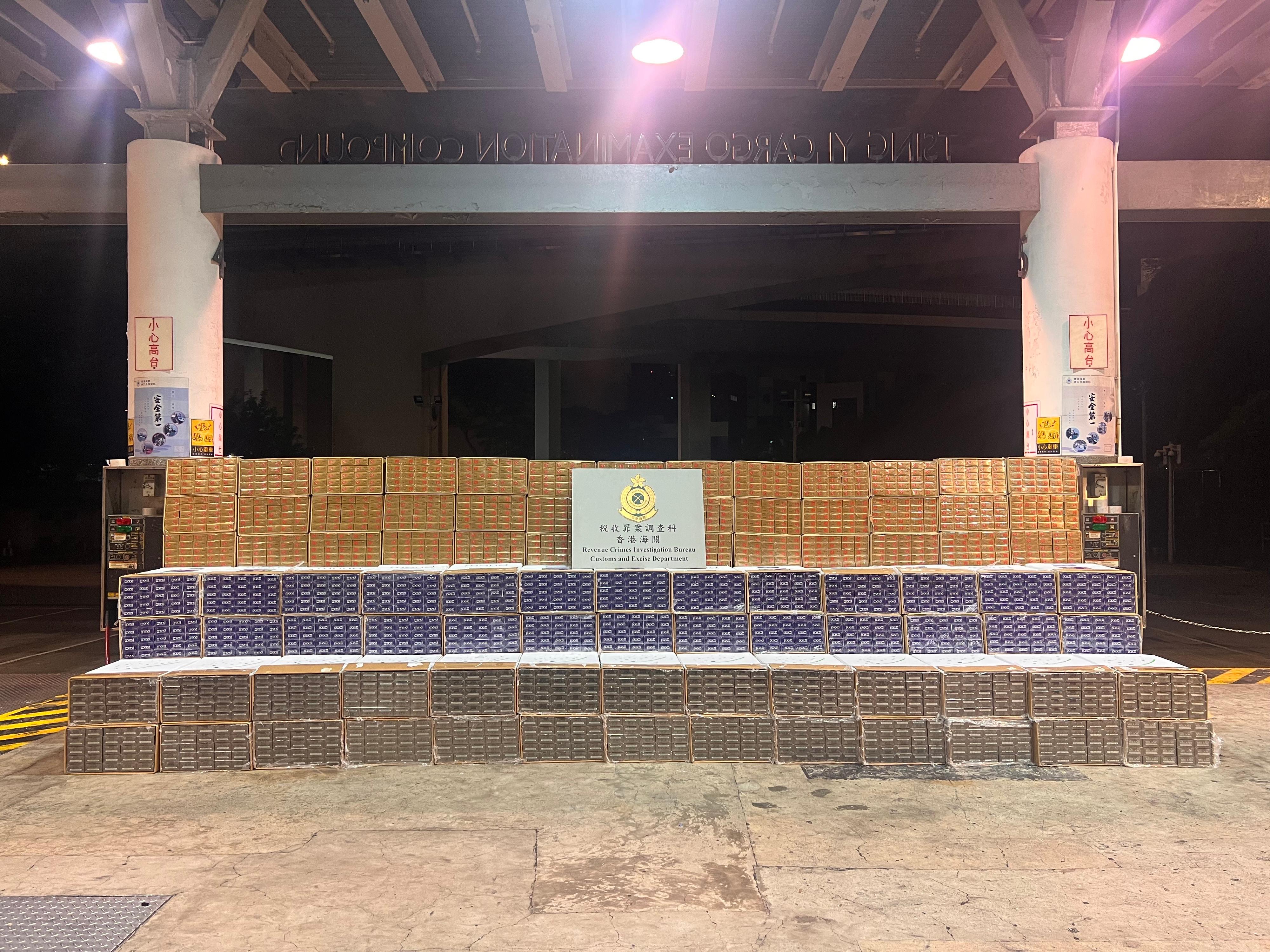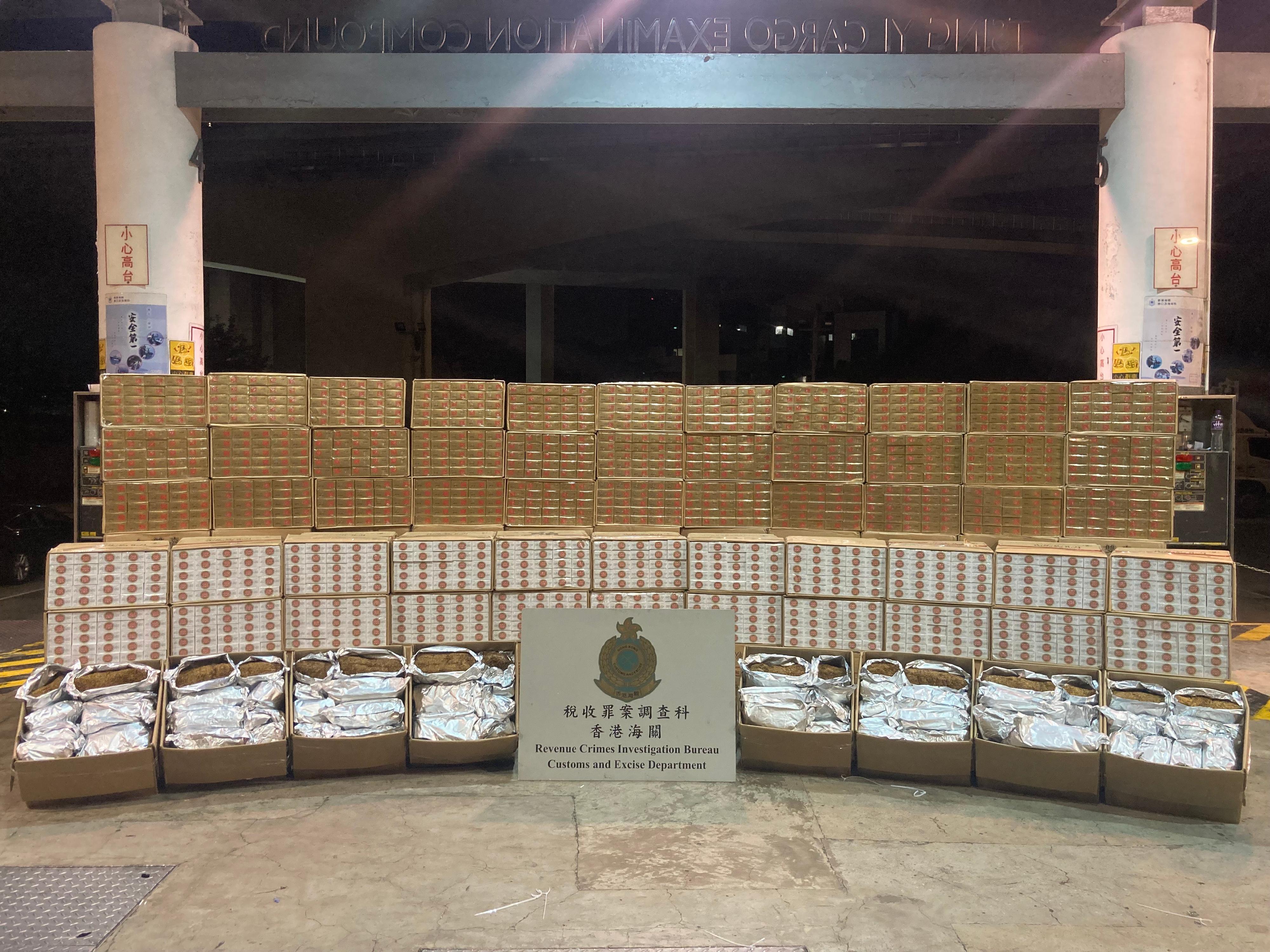OGCIO holds Hong Kong/Shanghai Co-operation Open Data Challenge 2023 Send-off Ceremony for Hong Kong Delegation (with photos)
​The Office of the Government Chief Information Officer (OGCIO) today (August 8) held the Hong Kong/Shanghai Co-operation Open Data Challenge 2023 Send-off Ceremony for the Hong Kong Delegation. The Government Chief Information Officer, Mr Tony Wong, presented a banner with words of blessings to the contestants who will be competing in Shanghai.
The delegation, comprising 10 finalist teams or individuals from various enterprises and universities in Hong Kong, will participate in the Grand Final to be held from August 13 to 14 in Shanghai, where they will compete with 10 finalist teams from the Mainland for top four honours and the Grand Award of the competition.
Speaking at the ceremony, Mr Wong said that the OGCIO and the Shanghai Municipal Commission of Economy and Informatization jointly organised the competition for the first time this year. The aim is to deepen the knowledge of enterprises and technology talent in both places on open data and relevant applications through data co-operation and exchanges, with a view to enhancing understanding on open data’s multifarious benefits and advantages, and to enter a new era of co-operation between Hong Kong and Shanghai. He also wished the 10 Hong Kong finalists a great victory and success.
During their visit to Shanghai, the Hong Kong delegation will also showcase their technology solutions at the competition’s exhibition and conduct one-on-one meetings with representatives from the Mainland technology industry to explore business opportunities and exchange views on the infinite potential brought about by data. They will also visit several local renowned innovation and technology corporations to gain insights on the ecosystem and development of data application on the Mainland.
Commencing in Hong Kong in April this year with the theme “Co-creating a Data Industry Platform for the Two Cities”, the Hong Kong/Shanghai Co-operation Open Data Challenge 2023 gathers contestants from the Mainland and Hong Kong to incorporate available open data sets, with an aim to explore the development capacity of data collaboration and promote the synergy of smart city development between Hong Kong and Shanghai. Details of the competition are available on the thematic website (hkshadata.org/).







